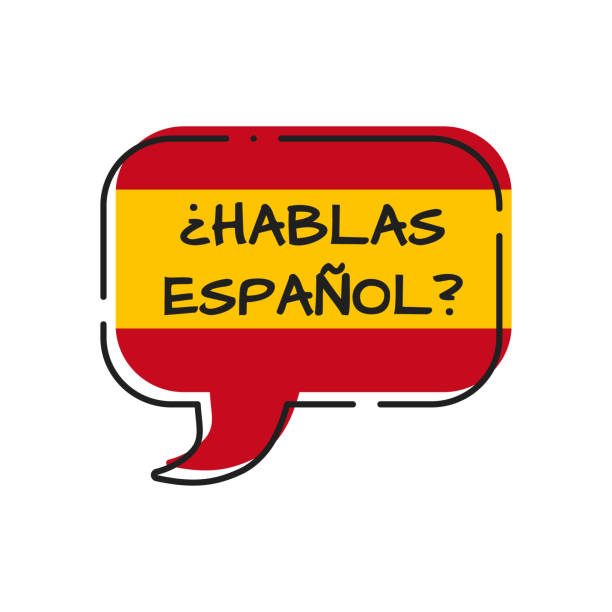

Hola! Bienvenidos a español! Welcome to Spanish!
Spanish is the Modern Foreign Language taught at St. Ignatius. In KS2, children from Years 3 to 6 cover a range of subject phrases and vocabulary, as well as the four skills; listening, speaking, reading and writing. Audio/visual resources, songs and interesting activities make the lessons dynamic and fun.
The emphasis is on communication, so each lesson provides regular opportunities to practise the target language and to develop confidence in speaking. This is done through partner-talk, group activities and role play.
We are very fortunate to have a number of Spanish-speaking children in school who enjoy the opportunity to act as ‘profesores pequeños’ (little teachers) within the lessons. Their knowledge and experience is an added resource for us, while also being a great example of successful peer teaching.
Through the study of Spanish, our Modern Foreign Languages (MFL) curriculum – delivered by Junior Jam – aims to develop a love of learning about other languages and cultures in our children. By the end of our children’s primary education, they have acquired an understanding of both spoken and written Spanish, are confident to speak in Spanish with others and know how important other languages can be in their future. Through their MFL curriculum, children learn to:
- understand and respond to spoken and written language
- speak with increasing confidence, fluency and spontaneity, improving the accuracy of their pronunciation and intonation
- write for different purposes and audiences, using the variety of grammatical structures that they have learnt
- discover and develop an appreciation of a range of writing in the language studied
The benefits of starting language learning early and progressively developing language skills is well understood. This allows the children to acquire new language then use and apply it in a range of different scenarios and topics, as well as providing opportunities to revisit and build upon learning in prior years. Children are encouraged and supported to develop their speaking and listening skills through conversational work, singing activities and games. As their confidence and skills grow, children record their work through pictures, captions and sentences. Our lessons aim to enhance listening and memory skills and are a very enjoyable part of our curriculum.
At St Ignatius we believe that learning a new language is vital because it creates so many positive opportunities for pupils and allows them to discover other cultures. Therefore, it’s our intent to teach languages so that children gain confidence, knowledge and transferrable skills about modern foreign languages to help them to progress with Spanish at secondary school and hopefully beyond.
To ensure our Spanish provision at St Ignatius is of the highest standard, our curriculum lessons are delivered by a native speaker from Junior Jam. The Spanish curriculum is made up of half-termly units, with step-by-step progression, always building on prior knowledge and skills, giving children the opportunity to consolidate, deepen and progress their Spanish language skills.
Junior Jam Progression Map
The Junior Jam Spanish language course incorporates interactive songs and visual learning as well as written and verbal tasks.
It is our hope that educating pupils in topics such as greetings or food and drink in Spanish will develop a new skill for them and we can hone this interest in the hope that it may one day be something they choose to use.
Key Stage Two Curriculum documents
Key Stage Two unit of work example
Within the lessons, our Spanish teacher monitors pupils closely to ensure progression is being made and that what they’ve set out to achieve through the curriculum is being met. The teacher will do this to gauge the understanding and retention of knowledge.
The impact for those children between Year 3 and Year 6 learning our Spanish curriculum is as follows:
• Children will have been provided with opportunities to communicate with each other in the taught language
• Children will have developed their language through speaking, listening, reading and writing
• Children will have used workbooks at the school and this will be evidence for their class teachers
• Children will have improved their language learning by developing an understanding of culture
• Children’s progress will be tracked through an assessment which happens at the end of each half term
Junior Jam measure and evidence the impact of their teaching through the following methods:
• Verbal feedback during lessons.
• Session Forms – These are weekly reports on whether the learning objective for the lesson was achieved
• Course Evaluations – These are half-termly reports for each class, measuring how the class performs against a range of statements specific to the course, allowing us to track how the class performs against national expectations
• End of HT assessments – the teacher gives pupils an assessment activity at the end of each half term. The assessment asks questions relating to what they have been taught
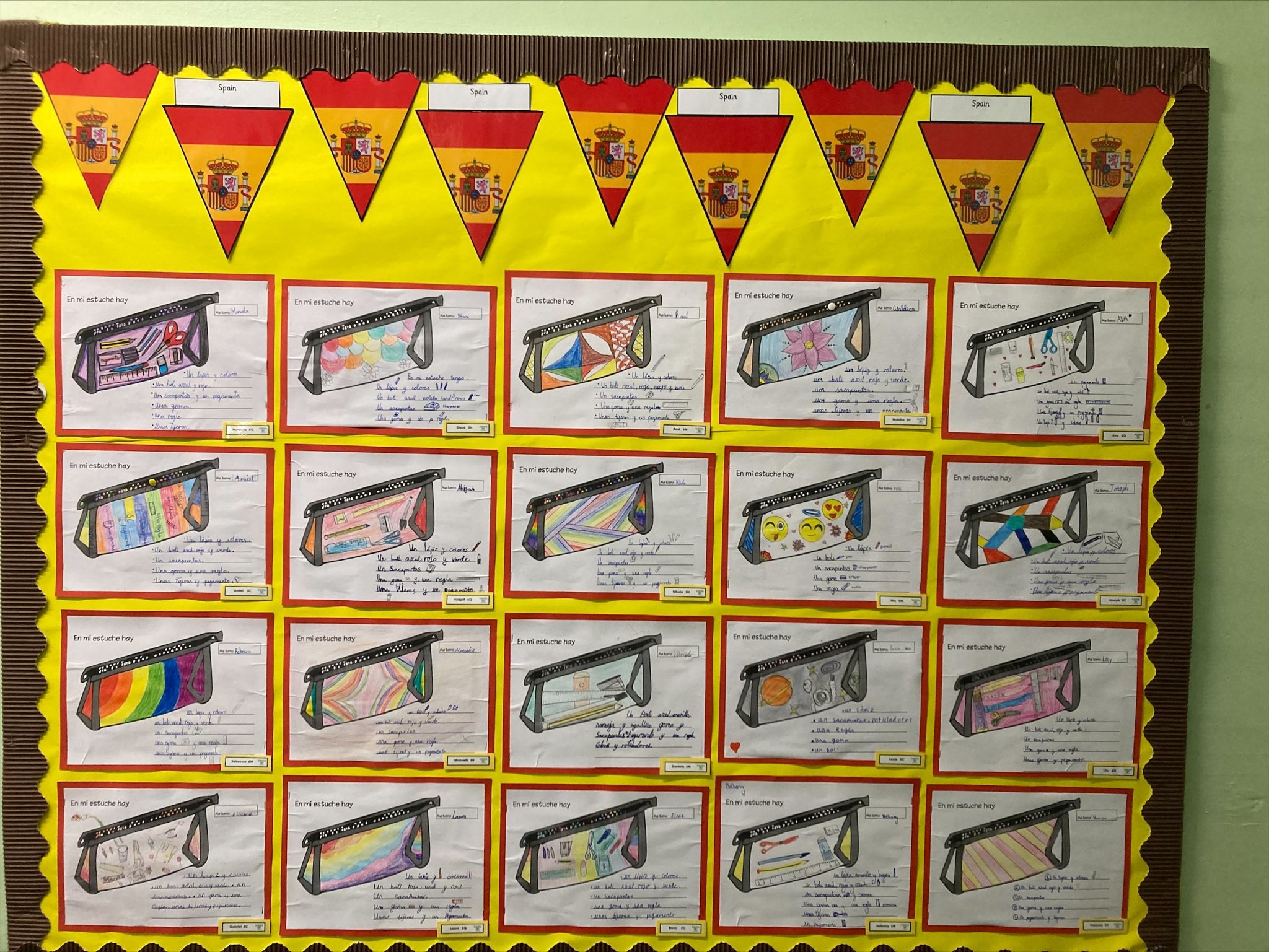
Our Spanish display in Briant building. We have been writing about the items in our pencil case.
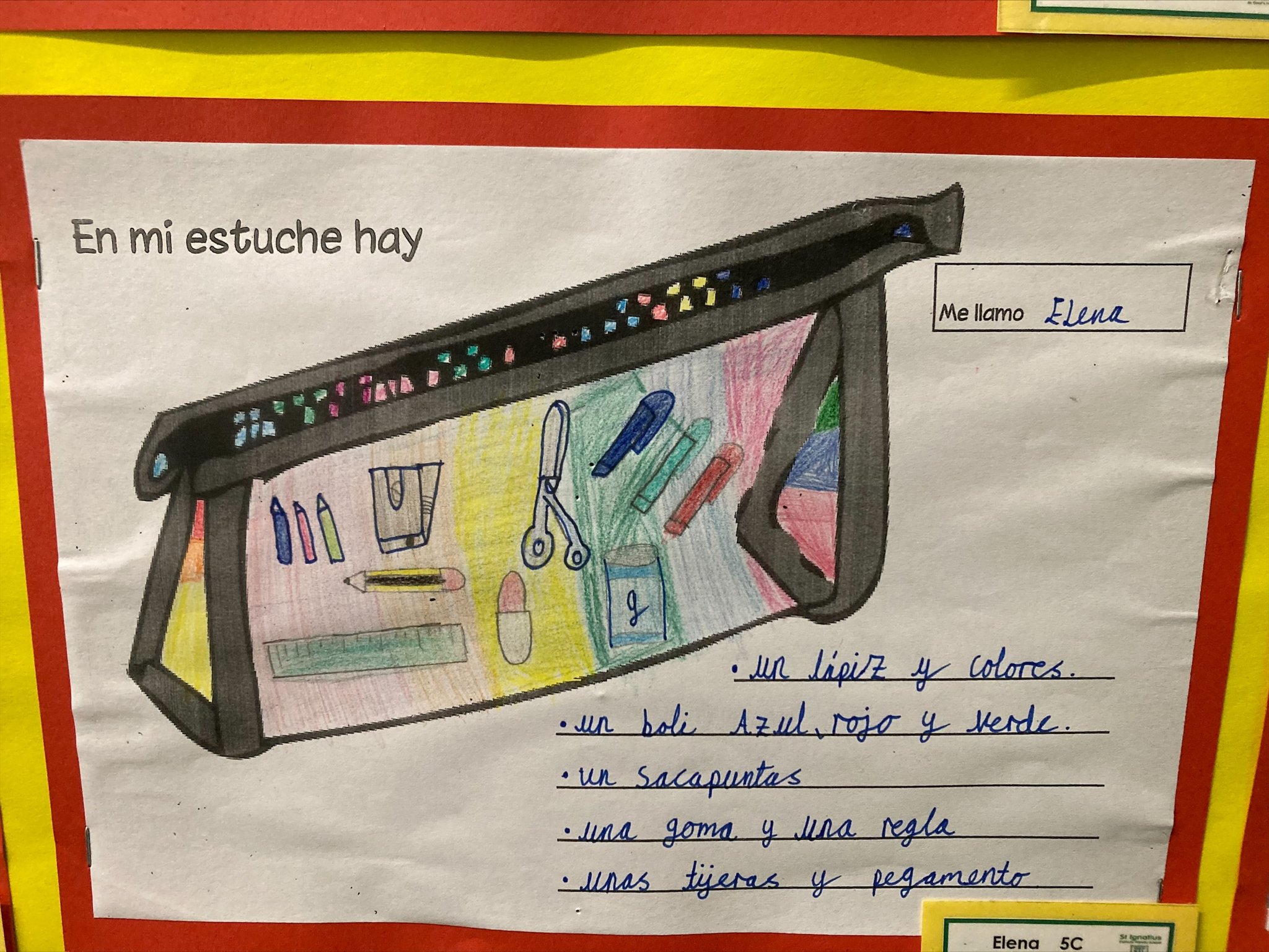
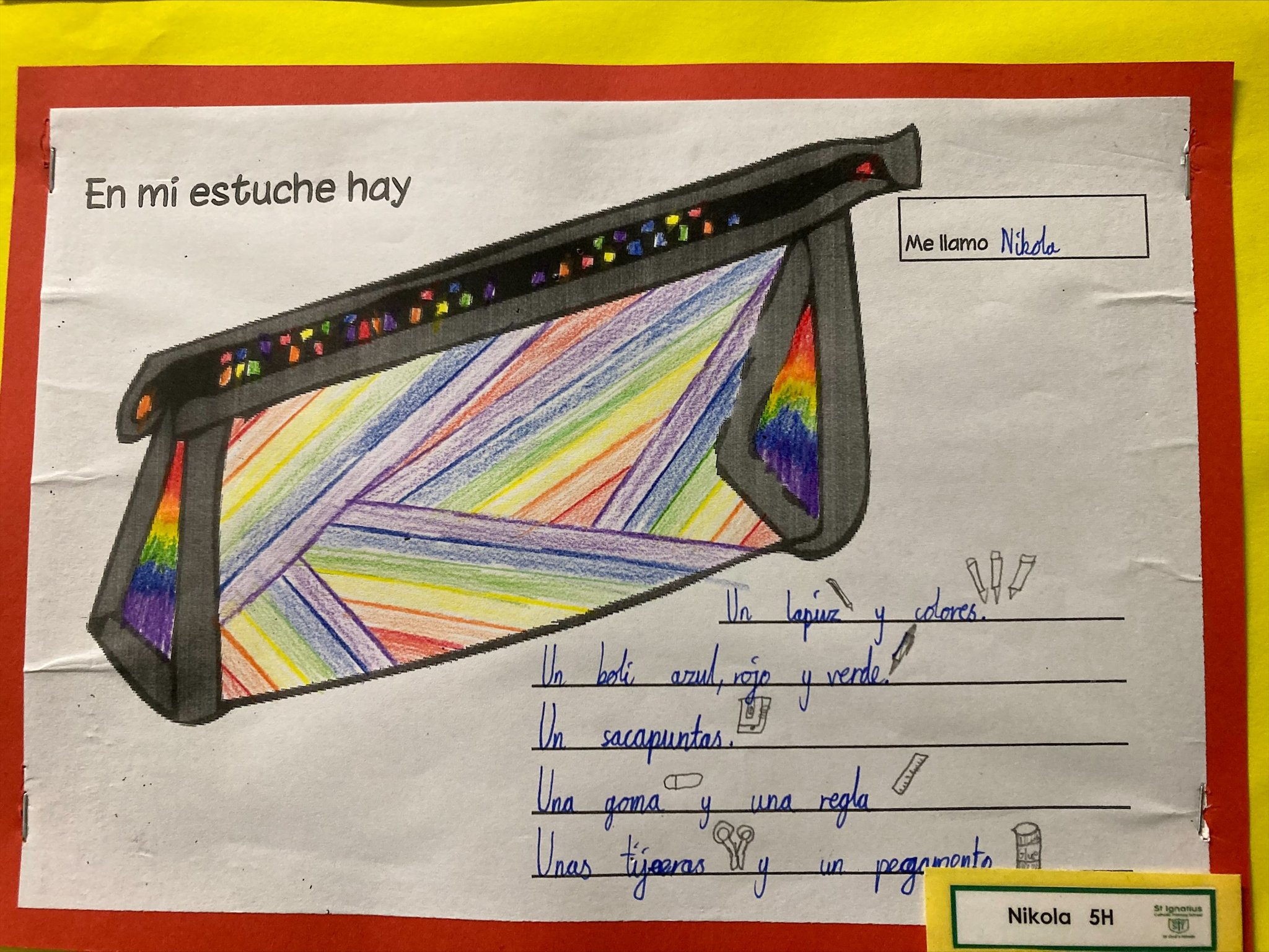
Gallery- Our Spanish Lessons:
Spanish
Spanish songs to help your learning:
Numbers- https://www.youtube.com/watch?v=6FEyfy5N3Nc
Days of the week- https://www.youtube.com/watch?v=C4fREj60Crk
Months – https://www.youtube.com/watch?v=IKznbHvPFwc
Colours – https://www.youtube.com/watch?v=DsRKoZGaoEM
Useful websites:
Spanish stories to enjoy:
Play some Spanish word games:
https://www.lightbulblanguages.co.uk/resources-sp-pz.htm
BBC Learning
https://www.bbc.co.uk/bitesize/subjects/zxsvr82
Duolingo
https://www.duolingo.com
Learn languages for free. Web or app.



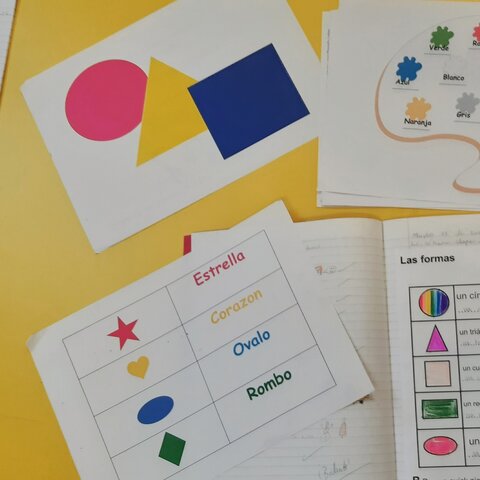
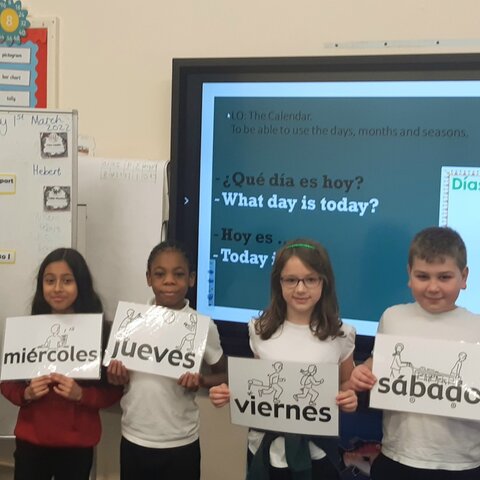
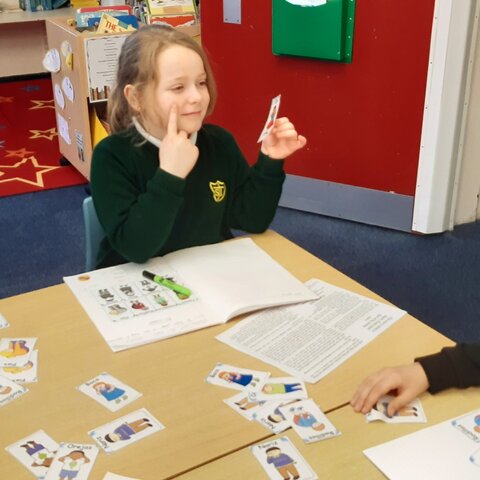
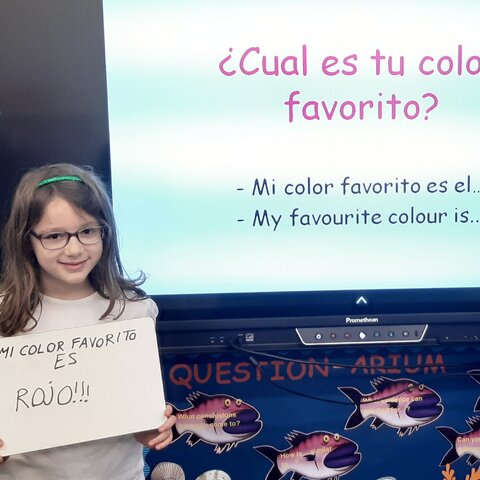
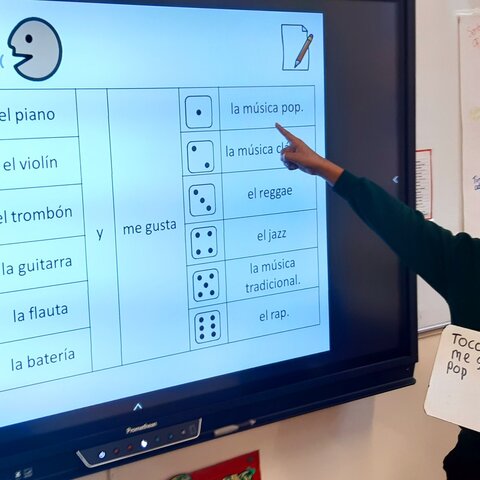
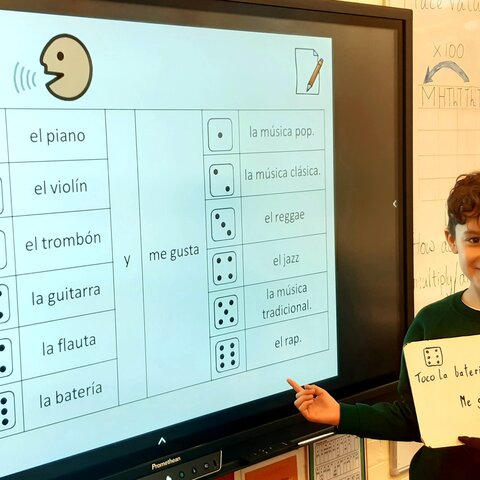
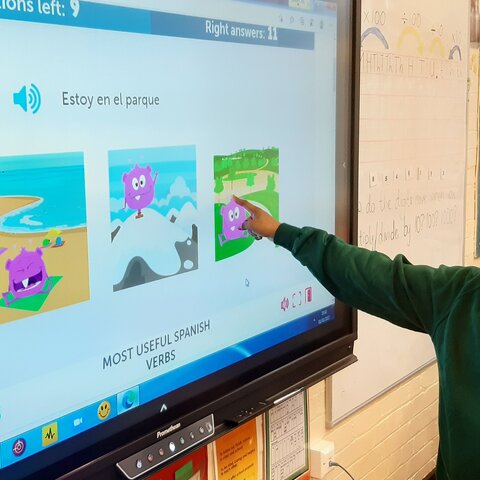
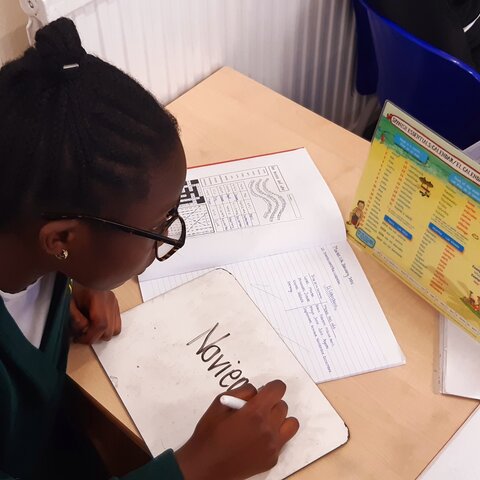
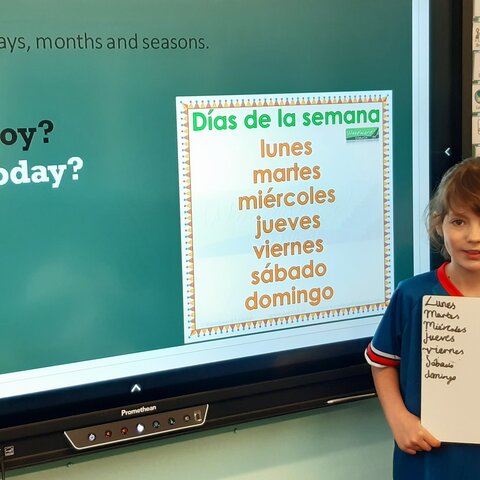
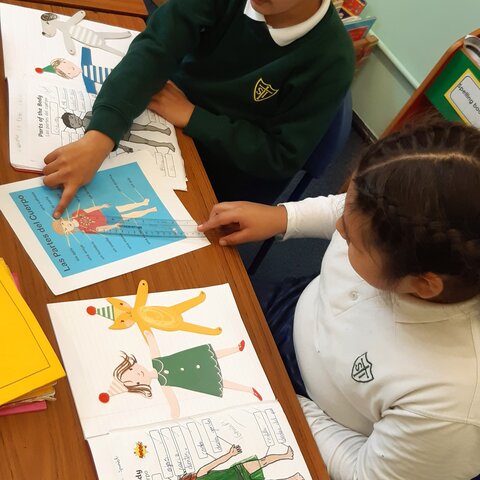
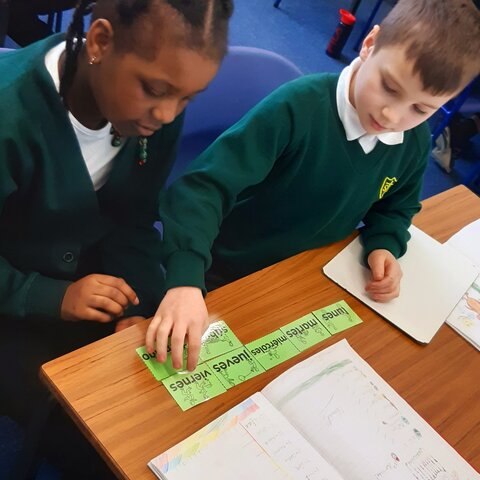
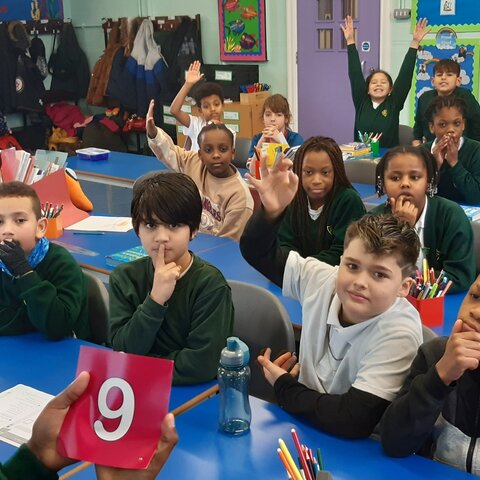
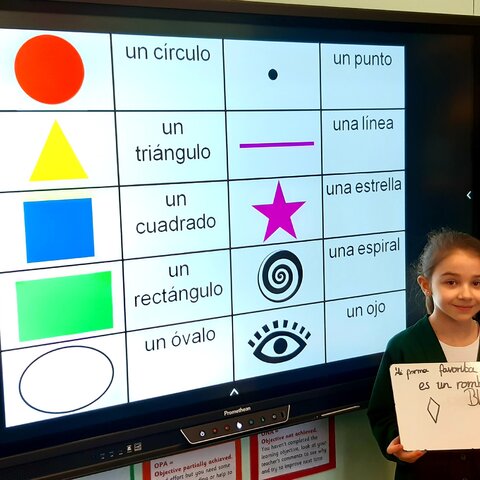
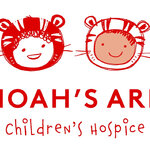

_0.jpg)
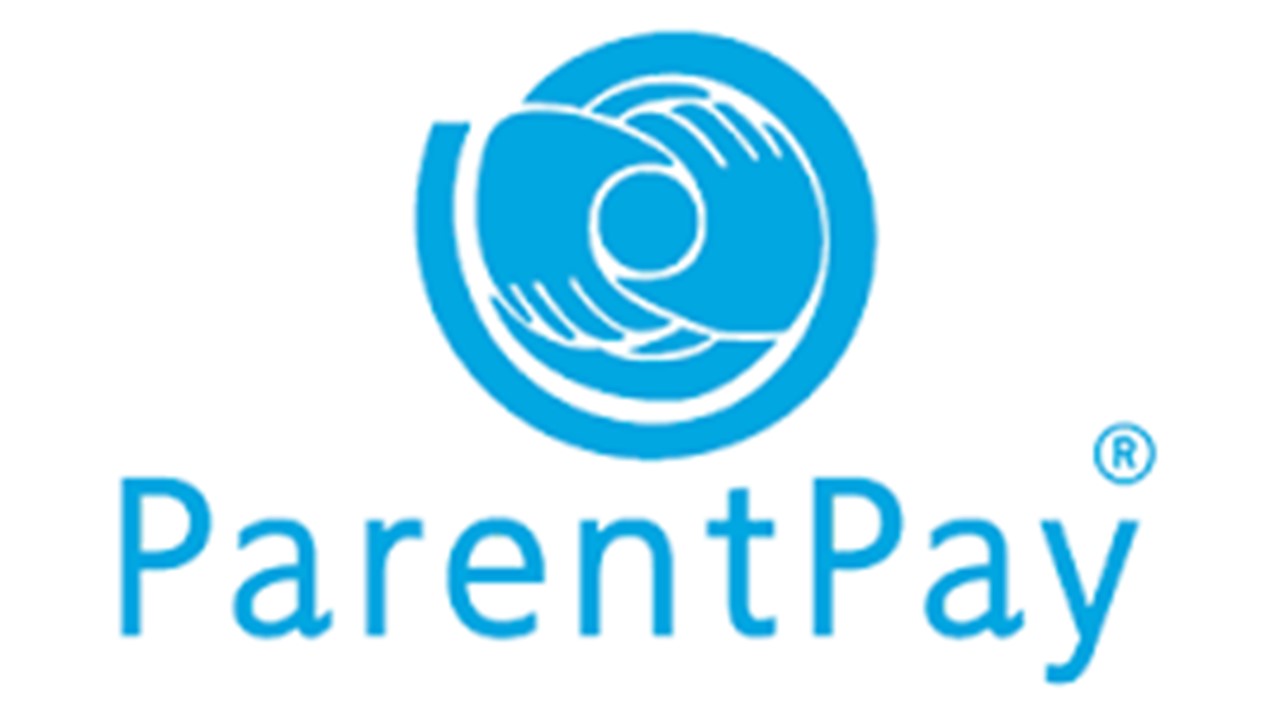
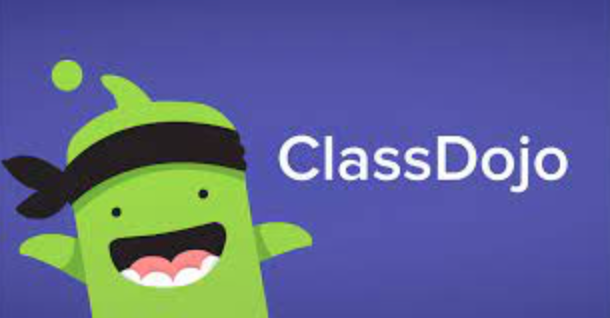
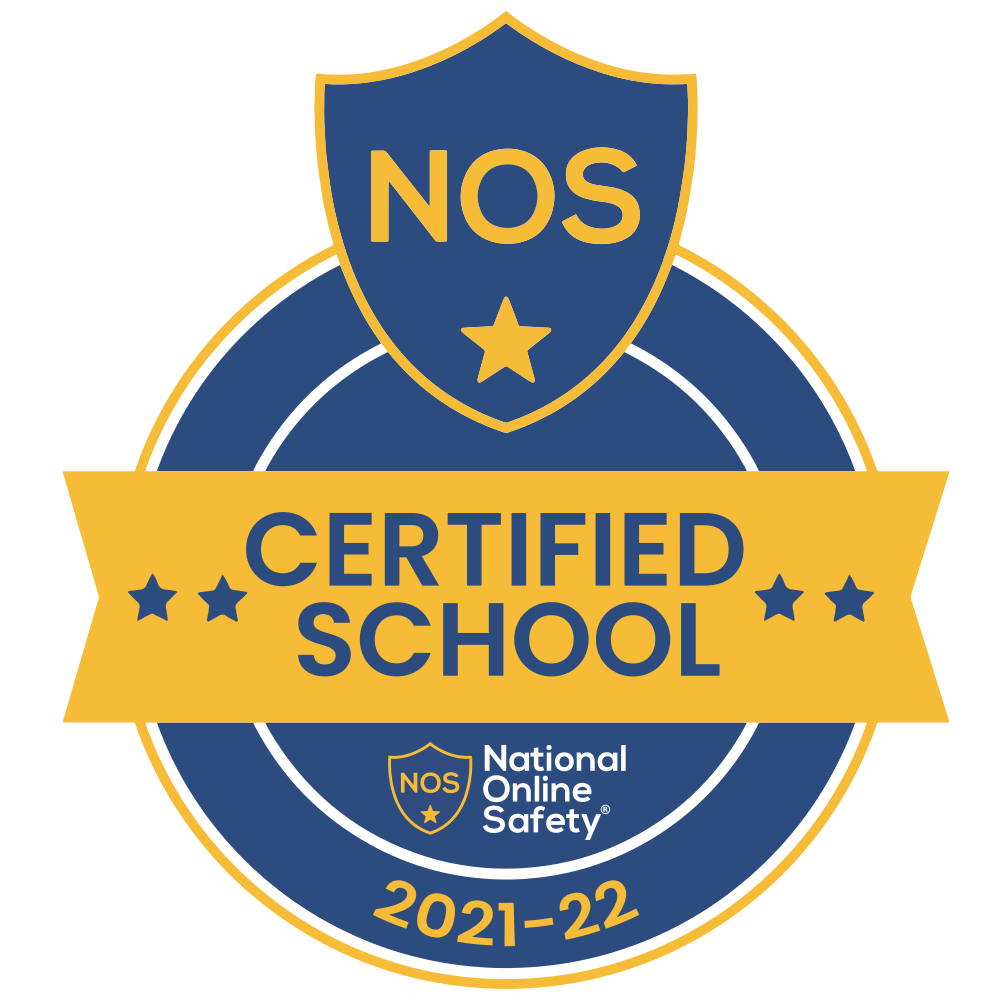
.jpeg)
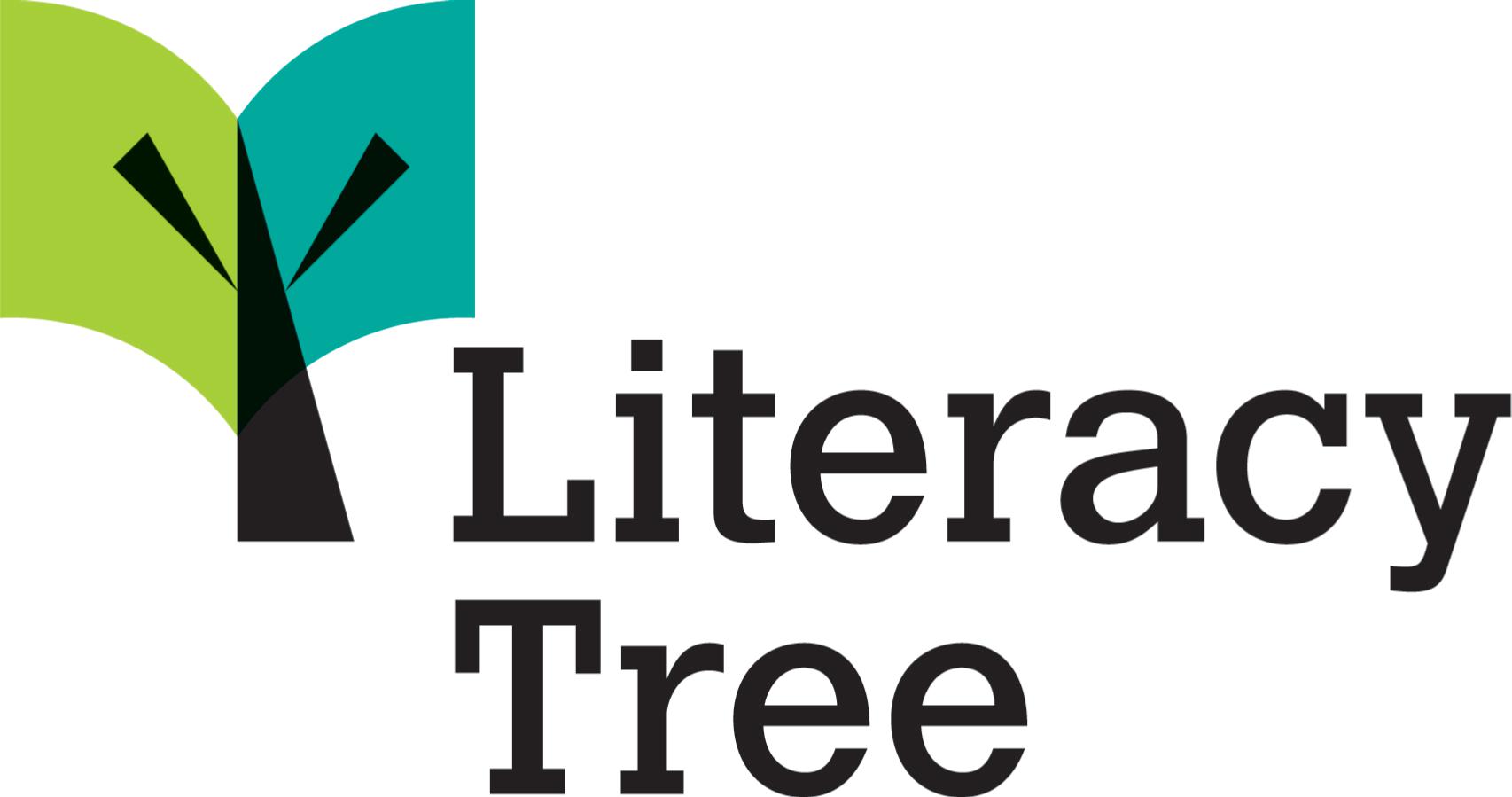
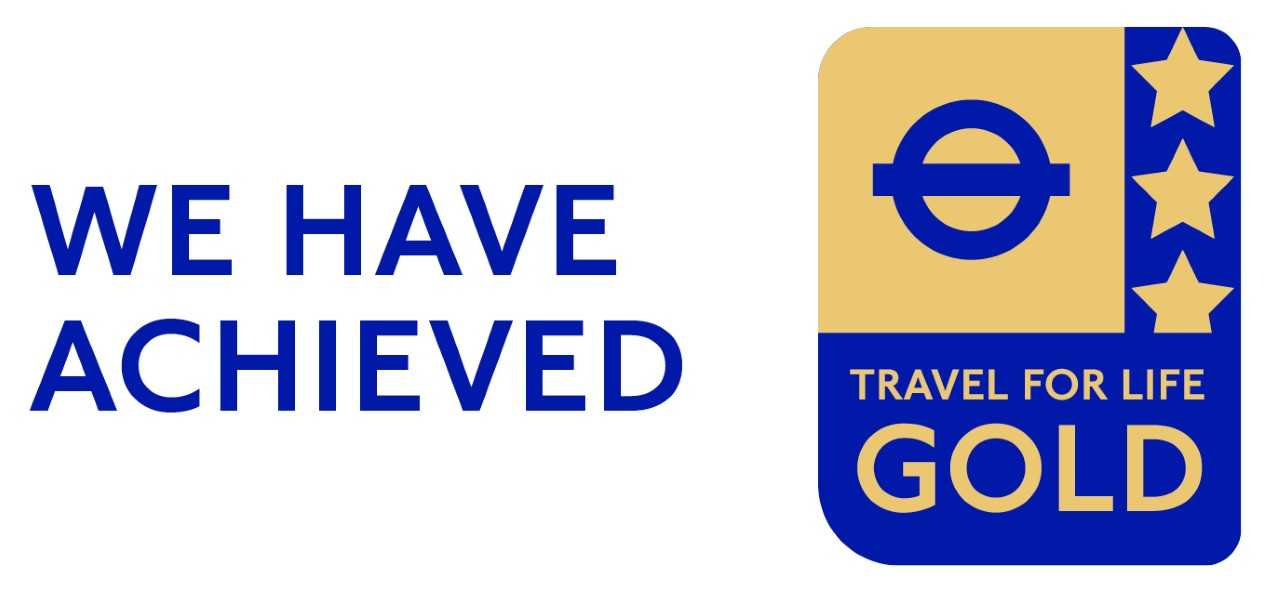
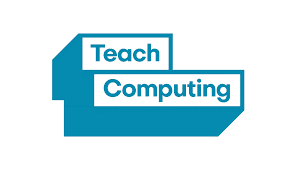
.jpg)
.png)
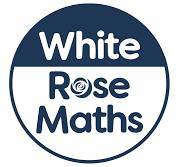
.jpg)

